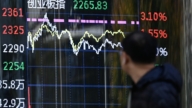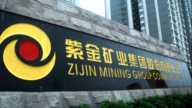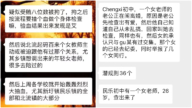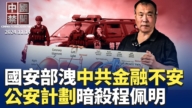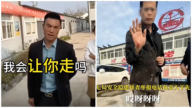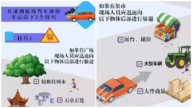【新唐人2012年2月8日訊】浙江東陽「本色集團」董事長吳英因集資詐騙二審被判死刑後,引發海內外輿論廣泛關注,網民們對社會公平、死刑改革、民間資本出路、金融壟斷、價值觀標準等一系列問題,展開一場罕見的討論。一個普通經濟案件迅速演變為一起政治、法治事件。
2012年1月18號,浙江省高級人民法院二審以「集資詐騙罪」裁定吳英死刑後,短短半個月間,已經演變成一起政治事件:一個名叫「吳英案輿論匯總」的微博,每天高密度更新相關評論。而北大、清華、浙江大學等高校學者,和一些知名律師致信最高法院為她求情。另外,網站開設的「吳英該不該死」的投票顯示,絕大部分投票者認為吳英罪不至死。
經濟學家張維迎在「中國企業家論壇」上表示,「如果吳英的集資應該被判死刑,我不知道還有多少人不應該被判死刑。」
被稱為「中國律師界的良心」的知名律師張思之指出,如果吳英被執行死刑將會影響中國經濟的發展。
經濟學家茅於軾、企業家王石、任志強等也認為吳英「罪不致死」。
英國《金融時報》認為,吳英在庭審過程中交代了一些官員參與高利貸活動的事實,以致於十多位官員集體向上級寫信陳請,希望嚴懲吳英,這些人才是殺死吳英的「兇手」。
作家葉檀也公開表示,此案中出現了一系列違反法律、違反規則、違反程序的事情,體現了地方豪強黑社會化的巨大可能性。
據了解,吳英民間借貸資金來源於11位親友,並沒有人告她。而吳英所購買的房產已被強制低價拍賣。如此大規模的民間聲援史上第一次,凸顯案件的不普通。
經濟學者鞏勝利:「她在用她的的智慧、用他的能力把資本集中到一個點上提升,以一種典型的智力結果。而中國現在的集權,前提是批准你就是合法、不批准你就是非法,誰合乎執政黨誰就是合法,不合乎執政黨,他就不合法。」
做過民營企業家的大陸作家鐵流認為,吳英用金錢行賄去獲得支持與幫助是迫不得已的。想在中國做大企業,賺大錢發大財,又不能不走這條路,但風險也是很大的。
大陸作家鐵流:「吳英能借上七個億,她可能給了貪官好多億了,最後不知道在哪個地方卡殼了,資金鏈產生了斷裂。所以當官的就採取了兩個辦法,一個叫殺人滅口,就是非得把吳英槍斃了。杭州地方官為甚麼要聯名寫信,要求殺掉吳英,不是此地無銀三百兩嗎?第二個就是把吳英的財產搶奪。這樣判的吳英死刑,所以吳英無罪的,殺吳英是不公平的。」
不過,此案的熱度燒得中共媒體也坐不住了。
《新華社》6號連續發佈了兩篇稿件,討論《普通案件為何成法治事件?吳英案標本意義分析》與《“吳英案”引熱議 凸顯中國金融體制改革急迫性》。一些所謂的專家學者也分析了「吳英案」背後法治、金融和經濟領域的問題。
新唐人記者秦雪、宋風、肖顏採訪報導。
Death Sentence of Wu Ying Triggered Political Incidents
Chairman of the True Qualities of Holding Group in Dongyang City,
Zhejiang Province, Wu Ying was sentenced to death
during her second trial, for collecting funds and fraud,
triggering widespread attention in China and abroad.
Netizens started a rare discussion over social justice,
financial monopoly, death penalty reform,
of a way-out of private capital, values and standards, etc.
An ordinary economic case has quickly evolved into
a political and legal event.
January 18-Zhejiang Supreme People’s Court sentenced
Wu Ying to death for “Collective Fraud" in the second trial.
In just half a month, it has evolved into a political event:
Micro-blog—“Public Opinions Summary of Wu Ying’s Case”
is updated frequently with related comments.
Scholars of Beijing University, Quinghua University,
and Zhejiang University among others, as well as some
well-known lawyers have sent letters to the Supreme Court
asking to spare Wu Ying’s life.
Also the internet poll: “Wu Ying Does Not Deserve to Die"
shows that most voters do not think Wu Ying deserves death.
China Entrepreneurs Forum: Economist Zhang Weiying says,
“If Wu Ying is sentenced to death for fund-raising, I do not
know how many people should not be sentenced to death."
Zhang Sizhi, known as the “conscience of Chinese lawyers"
pointed out that implementation of Wu Ying’s death penalty
will affect China’s economic development.
Economist Mao Yushi, entrepreneur Wang Shi, and Ren
Zhiqiang also think Wu Ying’s “crimes do not deserve death.”
According to the British Financial Times, Wu Ying confessed
during the trial that officials were involved in loan sharking,
causing more than 10 officials to collectively wrote to
the higher level, asking for severe punishment of Wu Ying.
These people are the real killers of Wu Ying.
Writer Ye Tan said publicly that there are violations of law,
rules and procedures in this case, reflecting a high possibility
that local officials are criminals.
Accordingly Wu Ying’s funds have been coming from
11 friends and relatives—none of them sued her.
Wu Ying’s real estate properties were forced to be auctioned.
This is the first case receiving such large-scale support from
people, showing the case as being something unique.
Economist Gong Shengli: “She used wisdom and ability to
collect capitals and earn profit. It is the result of wisdom.
In China today, whether it is legal or not depends on approval.
Those in line with the ruling party are valid, others are not.
China’s writer Tie Liu, who was once a private entrepreneur,
thinks Wu Ying had no other choice but to try to get support.
To do big business in China, earn big money and get rich,
one has to take this route. But the risk is huge.
Tie Liu (Writer):“Wu Ying was able to lend up to ¥700 million.
She might have given hundreds of millions to corrupt officials.
It might get stuck at a certain point, breaking the capital chain.
So officials took two ways, one—to eliminate the witness.
Why did local Hangzhou officials write letters together asking
for the death of Wu Ying? Are they trying to hide their crimes?
The second way is to take away Wu Ying’s property.
Such a death sentence is not fair. Wu Ying is innocent.”
However, even the Chinese Communist Party (CCP) media
could not remain silent.
January 6—Xinhua News Agency published two articles:
“Why Did a General Case Become a Legal Event?—
Significance and Analysis of Wu Ying’s Case”,
and “Wu Ying’s Case Causes Heated Discussions—
Showing the Urgency of China’s Financial System Reform.
Some so-called experts and scholars analyzed the rule of law
and the financial and economic issues behind Wu Ying’s case.
NTD reports Qing Xue, Song Feng and Xiao Yan


